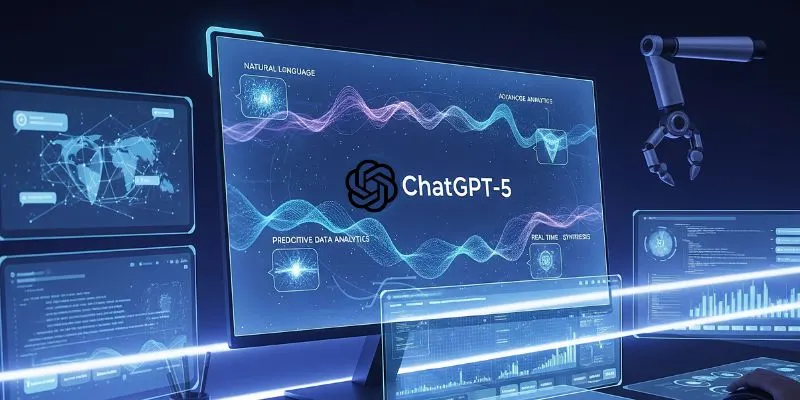How Google’s AI Search Summaries Are Disrupting Website Traffic and What It Means for Content Creators
By futureTEKnow | Editorial Team

By futureTEKnow | Editorial Team

Google’s integration of AI-generated search summaries is reshaping how users interact with search results and significantly impacting website traffic. These concise, AI-powered overviews answer user queries directly on the search results page, reducing the need to click through to external websites.
According to a recent Pew Research Center study analyzing nearly 69,000 Google searches, the click-through rate (CTR) on search results dropped from 15% to just 8% when an AI summary appeared at the top of the results. Even more striking, users clicked on the source links within these AI summaries only about 1% of the time. This indicates that AI summaries are often sufficiently satisfying users’ information needs without requiring visits to the original websites.
This change has led to a rise in users ending their browsing sessions immediately after seeing AI answers, with session endings increasing from 16% without AI summaries to 26% when they appear. Essentially, the AI summary serves as a one-stop answer rather than a gateway to more detailed content.

Web publishers face a major challenge as their primary source of traffic dwindles. For many, search-driven visits account for a significant part of their advertising revenue, which depends on page views and user engagement. The decline in clicks due to AI summaries threatens this revenue model, prompting alarms within the industry. Interestingly, this impacts Google itself, as it sells ad space on many websites that are losing visitors.
The economic strain on content creators and publishers stem from a paradox: to fuel AI with fresh data, the web needs vibrant content, yet the AI summaries are reducing the incentives to produce this content by capturing user attention directly on search pages.
Launched broadly in mid-2024 as part of Google’s Search Generative Experience, AI Overviews use large language models to produce quick, synthesized answers culled from multiple reputable sites. Instead of just showing a list of links, they repackage key information, enabling users to get “the gist” swiftly without clicking further. By early 2025, AI Overviews appeared on over 35% of U.S. desktop searches, and the trend is growing on mobile.
This nuanced format mimics interactive, conversational AI tools like ChatGPT but is built directly into Google’s core search experience, fundamentally altering how users consume information.
The widespread presence of AI summaries has pushed traditional search links well below the fold on both desktop and mobile, requiring users to scroll significantly more to see them. Consequently, top-ranking sites face sharp declines in traffic — some reporting drops as severe as 50-70% in click-through rates when AI Overviews are present.
While this benefits users by providing immediate, curated answers, it presents a “winner takes all” landscape where only a handful of high-authority sites are featured in AI summaries. Smaller or newer websites struggle to gain visibility, potentially stifling diversity and innovation in online content.
With AI summaries becoming the new norm, content creators and marketers must adapt:
Focus on clear, concise answers: Craft content that directly addresses common questions with precision and authority, as AI models tend to select succinct, well-structured information.
Create unique, in-depth content: Since AI clips from established sources, developing specialized insights and comprehensive resources can differentiate your site’s appeal.
Monitor AI behavior: Stay attuned to how AI search engines like Google’s generative models source and prioritize information to tailor your strategy accordingly.
Diversify traffic sources: Relying solely on Google search may no longer be sustainable; seek additional channels such as social media, email marketing, and direct engagement.
The rise of AI-generated search summaries underscores a transformational shift in how information is accessed and monetized online. While it offers undeniable convenience to users, it challenges traditional web traffic models and calls for innovative approaches to content creation and distribution in the AI era.

SpaceX aims to nearly double launches from Vandenberg in 2025, facing support from federal agencies but strong objections from the state and local communities.

Traditional Medicare will pilot AI-assisted prior authorization in 2026 across six states, focusing on high-risk outpatient services. Clinicians retain final say, but incentives and access concerns loom as CMS tests fraud reduction and “gold card” exemptions. Here’s what providers and patients should know.

OpenArt’s new “one-click story” compresses scripting, visuals, and edits into ready-to-post short videos—fueling viral growth and a fresh IP debate. We break down how it works, adoption signals, what’s next (multi-character, mobile), and practical guardrails creators and brands should follow to stay original and compliant.

OpenAI’s o3 swept the Kaggle AI chess tournament, defeating xAI’s Grok 4–0. The victory fueled the intense rivalry between Altman and Musk, reshaping AI benchmarks.

NASA and Google’s AI-powered Crew Medical Officer Digital Assistant enables autonomous diagnoses for astronauts on Mars missions, redefining remote healthcare for space and Earth.

Pinterest’s CEO confirms that fully agentic AI shopping is years away, as the platform invests in AI-powered tools to enhance discovery, inspiration, and personalized shopping experiences for millions.

Shopify’s new AI shopping tools are transforming e-commerce, letting agents and chatbots deliver smooth, personalized shopping and checkout experiences across platforms. Learn how these innovations reshape online retail.

Meta has acquired WaveForms AI, a startup pioneering emotion-detecting voice technology. Learn what this means for Meta’s AI voice ambitions and the future of AI audio.

Tracelight is revolutionizing financial modelling for finance professionals with AI-powered Excel tools that automate complex tasks, reduce errors, and unlock new analysis capabilities. Learn how this next-gen solution changes the future of spreadsheets.

China’s Lanyue lander completed its first major test, showcasing advanced engineering for safe, crewed moon landings before 2030. Explore how this milestone shapes the space race.

Microsoft rolls out GPT-5 across its Copilot suite, integrating smarter AI for enterprise and personal users. Discover new features, free access, and what sets this launch apart.

OpenAI’s GPT-5 is now live for all ChatGPT users. It brings faster, smarter AI with improved reasoning, expanded context, and safer outputs—marking a major leap in generative technology.
To provide the best experiences, we use technologies like cookies to store and/or access device information. Consenting to these technologies will allow us to process data such as browsing behavior or unique IDs on this site. Thanks for visiting futureTEKnow.